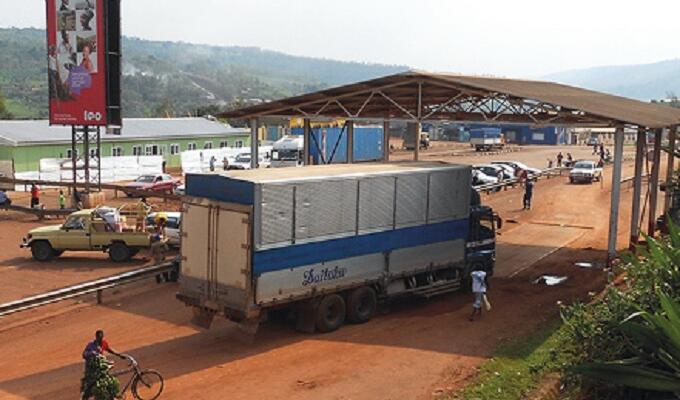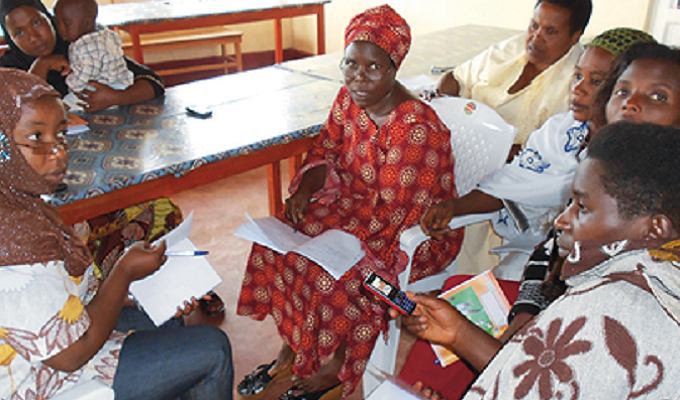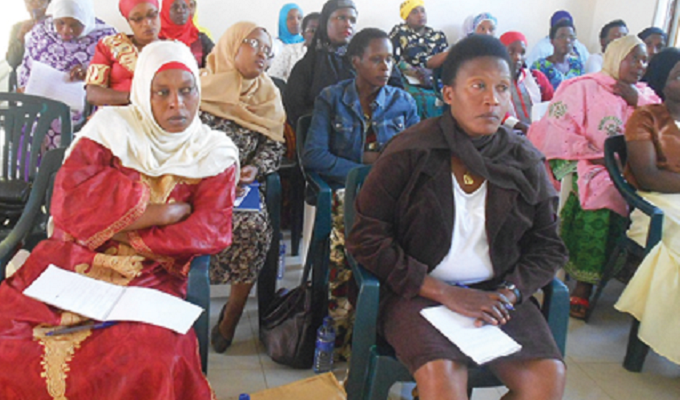


Helping women traders cross borders securely, smoothly – and formally
Informal cross-border trade in legitimately produced goods is a major feature of Africa’s economic and social landscape, and an important source of income for people without regular wages or much formal education.
Yet the women who make up the majority of such traders are vulnerable at borders to extortion, verbal and physical harassment and even assault. For governments, of course, informal trade by definition escapes taxation and regulation.
Weak border enforcement, especially at remote locations, is an important driver of informal trade. Other contributing factors include unnecessarily complicated customs formalities, transit regimes, and weak information sharing among border agencies. But women in many cases circumvent formal border processes because they lack the knowledge and capacity to complete transactions, pay taxes, or formalize their businesses. Far too often, they lack support structures that could help them overcome these challenges and improve their livelihoods.
One woman’s journeyJosephine Akoth never expected to become an informal cross-border trader. But when the native of Busia town in Uganda found herself struggling to pay bills for her family, she got in touch with a few friends who were earning modest incomes by carrying food products across the border. In 2010, she raised capital worth US$8 and joined their business, buying mangoes in nearby villages (they later diversified into maize and tomatoes) and selling them on to Kenyan traders at small profits. The women faced many challenges: they were often cheated into losses over exchange rate fluctuations, or because they lacked price negotiation skills and knowledge. After hearing peers’ stories about being arrested and having their goods confiscated, they set up a small stall on the Ugandan side of the border, selling mainly to Kenyan traders at even lower margins.
‘Informal cross border trade was very unpredictable, what you make today may be lost tomorrow through bribes and confiscation of your goods. Other women were forced to offer sex in exchange for safe passage,’ Akoth said.
A training workshop for women traders and border officials by the Uganda Export Promotion Board (UEPB) in partnership with ITC opened Akoth’s eyes to the relative ease of complying with border procedures and trading formally. ‘We were informed that our category of goods attracted no duties in the East African Community. [A group of women traders] formed an association and have since built a very good working relationship with the border authorities. I was able to start trading formally through the gazetted border crossing: all we need to do is fill out a simplified certificate of origin, and declare our goods and off we go,’ she said. ‘In fact after the training I developed a thick skin, my confidence grew a lot, I was able to go to Kenya and found many new clients, I was even given a deal to supply fruits and vegetables to a supermarket. Our business grew and our clients started advancing capital to us and with that we were able to rent storage space and expand our business.’
Through the project, Akoth and her associates participated in a regional trade fair, paving the way for them to start processing maize, millet and other produce into porridge and meal flour to sell in Uganda and Kenya. ‘With the support of UEPB and ITC, I was able to get quality certification for my products and so I am able to sell across the region,’ she said. Looking back to the start of the project, Akoth recalled an ITC trainer saying ‘she wanted to come back after some years and find us loading trucks of goods and trading across the region as opposed to the small volumes we were trading back then. I am now on course to achieve that.’
The responseJosephine Akoth never expected to become an informal cross-border trader. But when the native of Busia town in Uganda found herself struggling to pay bills for her family, she got in touch with a few friends who were earning modest incomes by carrying food products across the border. In 2010, she raised capital worth US$8 and joined their business, buying mangoes in nearby villages (they later diversified into maize and tomatoes) and selling them on to Kenyan traders at small profits. The women faced many challenges: they were often cheated into losses over exchange rate fluctuations, or because they lacked price negotiation skills and knowledge. After hearing peers’ stories about being arrested and having their goods confiscated, they set up a small stall on the Ugandan side of the border, selling mainly to Kenyan traders at even lower margins.
‘Informal cross border trade was very unpredictable, what you make today may be lost tomorrow through bribes and confiscation of your goods. Other women were forced to offer sex in exchange for safe passage,’ Akoth said.
A training workshop for women traders and border officials by the Uganda Export Promotion Board (UEPB) in partnership with ITC opened Akoth’s eyes to the relative ease of complying with border procedures and trading formally. ‘We were informed that our category of goods attracted no duties in the East African Community. [A group of women traders] formed an association and have since built a very good working relationship with the border authorities. I was able to start trading formally through the gazetted border crossing: all we need to do is fill out a simplified certificate of origin, and declare our goods and off we go,’ she said. ‘In fact after the training I developed a thick skin, my confidence grew a lot, I was able to go to Kenya and found many new clients, I was even given a deal to supply fruits and vegetables to a supermarket. Our business grew and our clients started advancing capital to us and with that we were able to rent storage space and expand our business.’
Through the project, Akoth and her associates participated in a regional trade fair, paving the way for them to start processing maize, millet and other produce into porridge and meal flour to sell in Uganda and Kenya. ‘With the support of UEPB and ITC, I was able to get quality certification for my products and so I am able to sell across the region,’ she said. Looking back to the start of the project, Akoth recalled an ITC trainer saying ‘she wanted to come back after some years and find us loading trucks of goods and trading across the region as opposed to the small volumes we were trading back then. I am now on course to achieve that.’
The resultsIn 2015, close to 500 women involved in informal cross border trade participated in capacity building activities covering issues such as taxation, border procedures, and how to mobilize collectively through associations. Of them, over a quarter went on to successfully formalize.
Beneficiaries report reduced border costs, higher profits and greater capacity to manage cross-border transactions; they also participated in regional trade exhibitions. Some 70 newly formalized Burundian traders reported a four-fold increase in the number of customs declarations for their export transactions. Previously, their transactions were often subject to demands for bribes; after the formal declarations, many qualified for zero-duty treatment.
Nineteen associations of women traders are now better able to provide support services at the border. These associations have enabled the traders to share concerns with border agencies and influence policy discussions related to cross-border trade.
The futureAfter the completion of this phase of the project in 2016, ITC is looking to expand the initiative to other eastern and southern African countries, providing capacity building, increasing support for women traders, improving relations with border agencies and creating new business opportunities for trade across the region.



